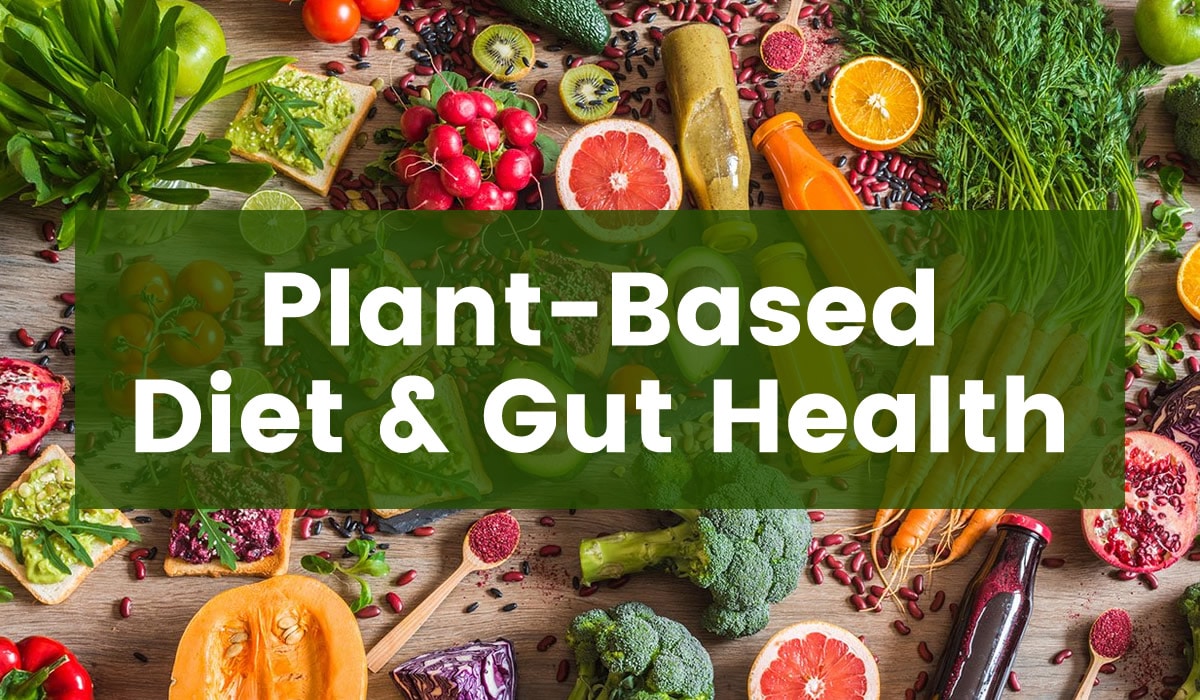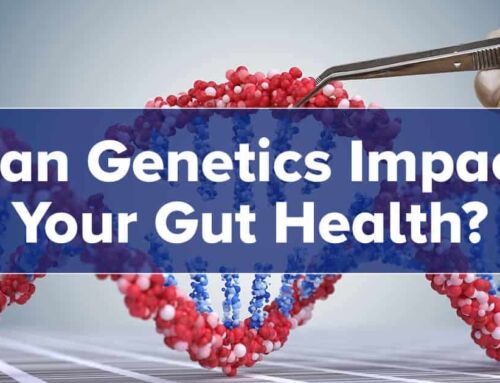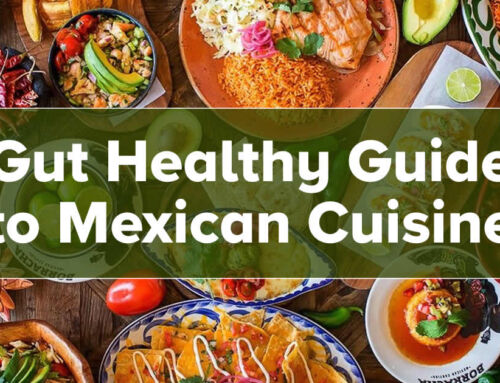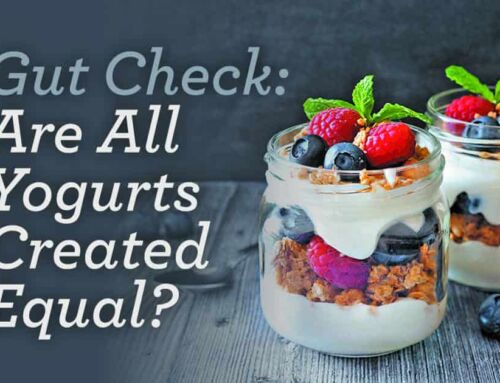You may have heard of a plant-based diet since it’s been getting a lot of press lately. Whether you ran across it in the news or watched a movie like The Game Changers, there’s no shortage of people claiming a plant-based diet has improved their health. Many have said it can help be a tool for weight loss and even lead to a healthier complexion.
But is a plant-based diet all it’s cracked up to be and can it really improve your gut health?
If you’re regularly experiencing digestive problems like an upset stomach, diarrhea, or constipation, you may want to examine your diet. This is because your diet plays an important role in the health of your digestive system.
Today, we’re going to discuss how a plant-based diet can help the microorganisms in your gut flourish and what benefits you may experience as a result of your dietary choices. In addition, we’ll cover the healing components of plant-based foods and what to do when diet changes aren’t kicking your symptoms to the curb.
Diet and the Microbiome
Your microbiome is made up of trillions of microorganisms such as bacteria, viruses, and fungi that live in and on your body. And you might be surprised to learn that a majority of these microbes live inside your gut. Here, a delicate balance of both good and bad microorganisms must be maintained to keep stay in good health. Because when it’s disrupted, it can upset your gut health and lead to the development of certain diseases.
Consuming a Western diet — a diet heavy in saturated fats, red meat, and carbohydrates — reduces the diversity of microorganisms in your microbiome.
A Western diet has been linked to diseases including:
- Inflammatory bowel disease (ulcerative colitis, Crohn’s disease)
- Cardiovascular diseases
- Hypercholesterolemia
- Diabetes mellitus
- Obesity
As you can see, your diet influences more than just your gut health. What you eat has a direct correlation on your total body health and longevity.
What is a Plant-Based Diet?
A plant-based diet is a diet focused on foods that come from plant sources. Staples of a plant-based diet include:
- Vegetables
- Fruit
- Legumes (beans, peas, and lentils)
- Nuts and seeds
- Whole grains (oats, quinoa, and brown rice)
Eating a plant-based diet involves reducing your intake of processed foods and animal products such as dairy, eggs, and meat. It doesn’t mean you need to cut these foods out completely, but the majority of your diet would consist of whole foods that come from plants.
Gut-Healing Components of a Plant-Based Diet
Plant-based foods are packed with vitamins, minerals, and nutrients that are beneficial for your health. Below, we’ll explore some components of plant-based foods and how they contribute to a healthy gut.
Fiber
Fiber is naturally found in plants and is made up of carbohydrates that cannot be digested or absorbed by the human body. Fiber adds bulk to your stool and prevents constipation. Eating plant-based foods rich in fiber can improve the regularity of your bowel movements.
Some forms of fiber act as a prebiotic — they feed the microorganisms in your gut and promote the growth of good bacteria. Prebiotics can also reduce the growth of bad bacteria in your gut.
Some foods that are high in prebiotics include:
- Onions
- Garlic
- Bananas
- Whole grains
- Jerusalem artichokes
Studies have shown that diets low in fiber weaken your immune system and make you more susceptible to the development of chronic inflammatory diseases. The American Heart Association recommends eating 25-30 grams of fiber daily from food.
Try to incorporate more fiber into your daily diet to improve your gut health. But you should add these foods in small amounts to build up your tolerance. Eating too much fiber too quickly can lead to excess gas and bloating.
Interested in learning more about the advantages of fiber? Read our article to get answers to the most common questions regarding dietary fiber.
Polyphenols
Polyphenols are bioactive compounds found in plant foods. Like fiber, polyphenols resist digestion. They pass through the small intestine without being absorbed and are then metabolized by microorganisms in the gut. Polyphenols increase the growth of healthy bacteria and decrease the growth of disease-causing bacteria.
Some foods that are high in polyphenols include:
- Tea
- Coffee
- Red wine
- Vegetables
- Strawberries
- Peanuts
Remarkably, polyphenols have also been shown to prevent cancer and cardiovascular diseases, reduce inflammation, and improve blood flow.
Probiotics
Another way to increase good bacteria in your gut is to eat plant-based foods that contain probiotics. Probiotics are live bacteria or yeast that improve gut health. They are commonly found in fermented foods.
Healthy sources of probiotics include:
- Sauerkraut
- Miso
- Tempeh
- Kimchi
- Water kefir
Limited evidence exists for the effectiveness of fermented foods on gastrointestinal disorders. I frequently have a conversation with my patients emphasizing that we don’t have any good data indicating that probiotics help, but, unless the patient is immunosuppressed there is likely no harm. In my opinion, if someone wants to try a probiotic I’m ok with that but if they don’t feel it’s making a positive difference after 3-4 weeks, I don’t recommend continuing.
Digestive Benefits of a Plant-Based Diet
To summarize, a plant-based diet offers many benefits for your gut health as well as your overall health. Consuming plant-based foods increases the growth of good bacteria in your gut and stabilizes your microbiome, keeping your body in homeostasis.
You might be surprised to find out that studies have shown eating a plant-based diet can improve gut health in as little as 5 days. In addition, a plant-based diet may also reduce uncomfortable digestive problems such as abdominal pain, diarrhea, and constipation.
Healthy gut bacteria have an important role in your body and work to:
- Regulate cholesterol, blood pressure, and glucose metabolism
- Create essential vitamins that your body needs
- Prevent infections
- Help your immune system function correctly
- Improve digestion
So while a plant-based diet isn’t a cure-all for digestive disorders, this diet change may play a large role in improving your gut health. Many of these benefits are attributed to the fact that a plant-based diet is rich in whole foods and greatly reduces problematic processed foods.
What to Do When Your Digestive Problems Stick Around
Eating a plant-based diet is a natural way to improve your gut health. But gastrointestinal disorders can be caused by more than just your diet. A plant-based diet is most beneficial for your gut health in combination with lifestyle modifications such as reducing stress and getting frequent exercise. But sometimes gastrointestinal disorders can be caused by factors outside your control.
Persistent digestive problems may be a sign of an underlying medical condition, so it is important to be evaluated by a medical professional to rule out any serious health issues. If you are experiencing digestive problems that do not resolve relatively quickly, call my office at (210) 615-8308 or schedule an appointment online to learn about other ways to improve gut health.






